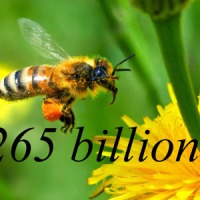GM crops to be allowed into Britain under controversial EU plans
UK to back imports of animal feed with traces of GM crops in move to benefit US exporters
Jamie Doward
The Observer, Sunday 6 February 2011

Photograph: Martin Argles for the Observer
Genetically modified crops will be allowed to enter the UK food chain without the need for regulatory clearance for the first time under controversial plans expected to be approved this week.
The Observer understands that the UK intends to back EU plans permitting the importing of animal feed containing traces of unauthorised GM crops in a move that has alarmed environmental groups.
Importing animal feed containing GM feed must at present be authorised by European regulators. But a vote on Tuesday in favour of the scheme put forward by the EU’s standing committee on the food chain and animal health would overturn the EU’s “zero tolerance” policy towards the import of unauthorised GM crops.
The move would mark a significant victory for the GM lobby, which has pushed for a relaxation of the blanket ban for years.Environmental groups claim the GM industry wants to use the presence of unauthorised organisms in animal feed as part of a wider strategy to promote its technology.
“The GM industry is pushing this proposal so it can wedge its foot firmly in the door and open up the British and European markets to food no one wants to eat,” said Helen Wallace, director of GeneWatch UK, which campaigns against GM food. “Its long-term aim is to contaminate the food chain to such an extent that GM-free food will disappear.”
Relaxing the EU’s zero-tolerance position would greatly benefit US feed exporters. The push for Europe to drop its zero-tolerance policy began in 2009 after EU authorities found traces of GM maize in soy shipments from the US and refused to allow its entry. Such recalls are expensive and those affected are unlikely to receive compensation.
GM supporters warn that the current zero-tolerance policy could result in a dramatic shortage of feed for livestock. But critics dismiss the claims as scaremongering and say there is no evidence to back up them up.
“This is a solution without a problem, and the price could be very high indeed when unknown genetically modified organisms are let loose in the food chain,” said Eve Mitchell, food policy adviser at Food and Water Europe, a campaign group.
“Rather than ignoring EU food safety laws to help the US soy industry cut costs, we should simply buy the stuff from countries that segregate their GM properly. If it hasn’t been tested, why eat it?”
Many of the GM crops, notably soy and maize, that have been found in animal feed imported into Europe are resistant to multiple herbicides. Critics blame these new GM crops for the recent rise of “super weeds” across vast tracts of the US farm belt.
Friends of the Earth Europe said it had obtained expert legal advice questioning the legality of the EU’s plan. But European regulators believe that allowing the import of animal feed containing no more than 0.1% of GM traces does not jeopardise food security.
Jamie Doward
guardian.co.uk © Guardian News and Media Limited 2011
0.1%? That’s exactly the size of the thin end of the wedge. Isn’t it?
Read Full Post »
 90%
90% A Silent Forest – The Growing Threat, Genetically Engineered Trees (2009)
A Silent Forest – The Growing Threat, Genetically Engineered Trees (2009)









You must be logged in to post a comment.